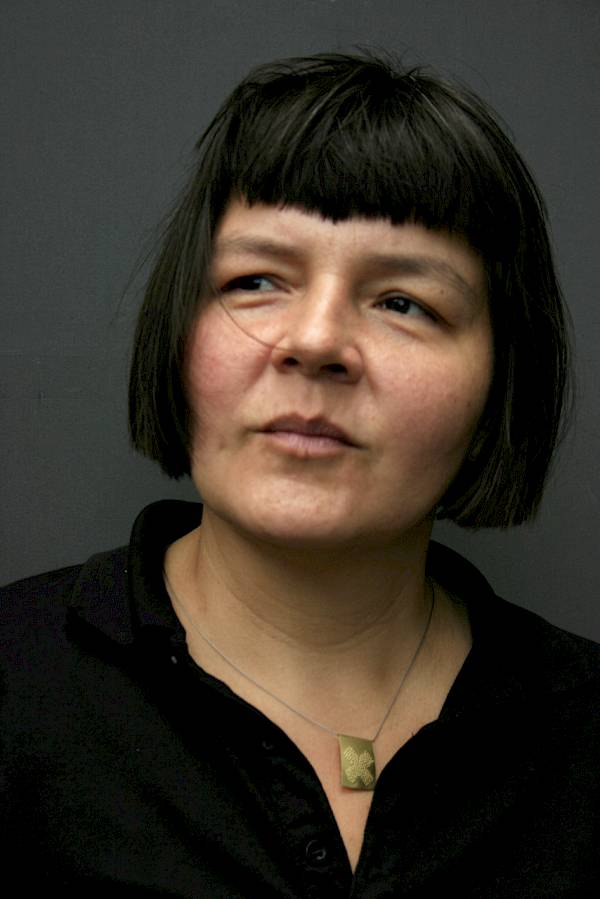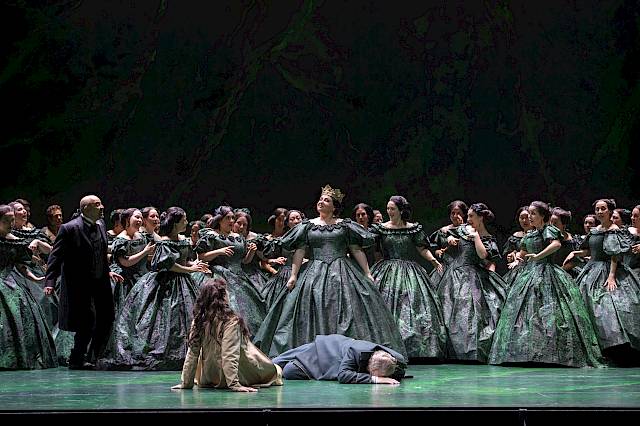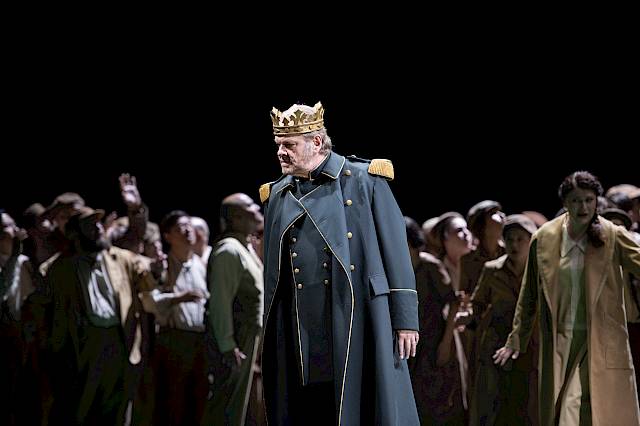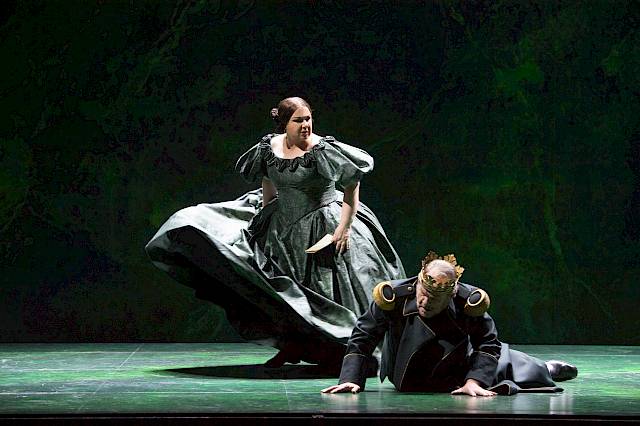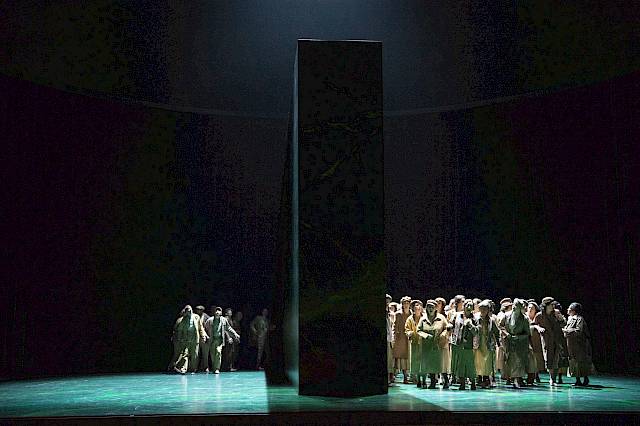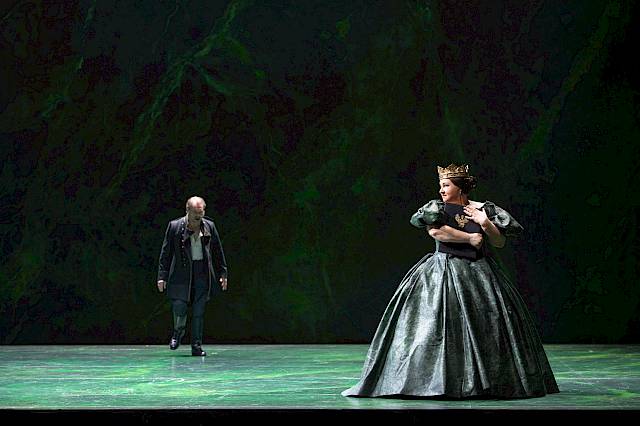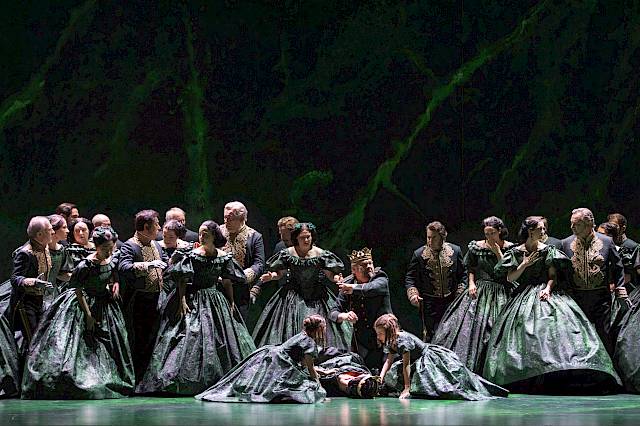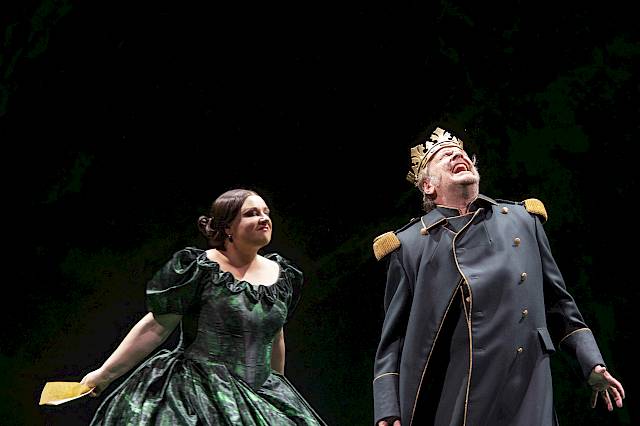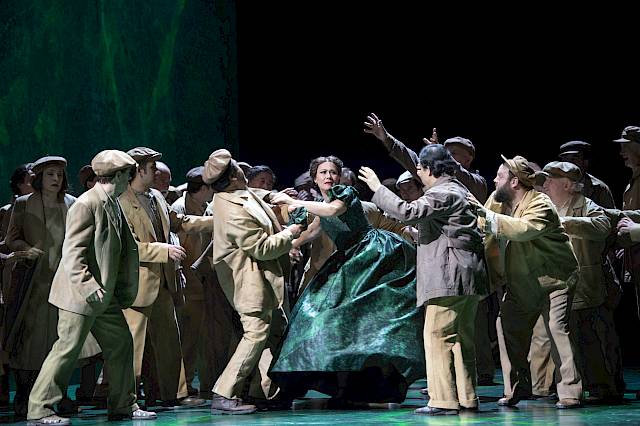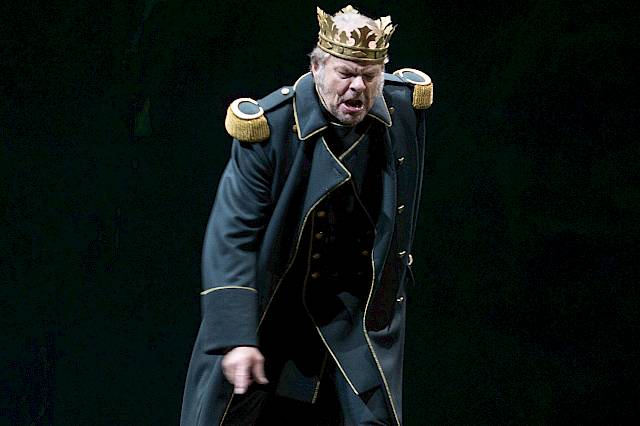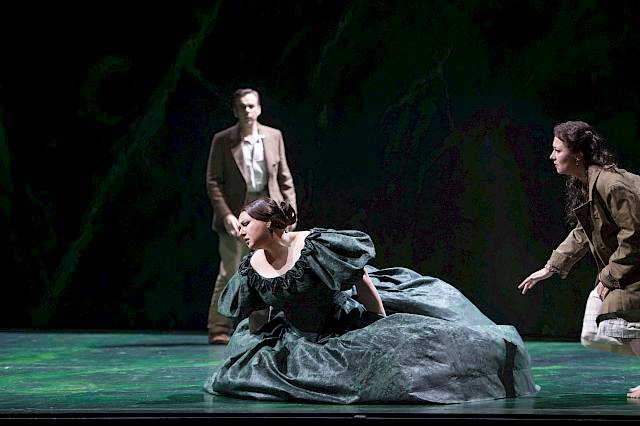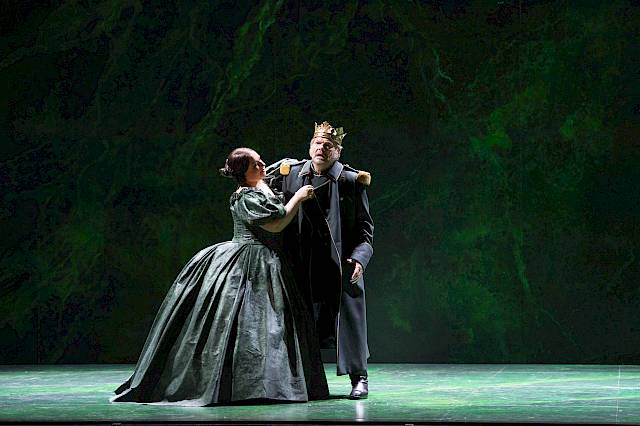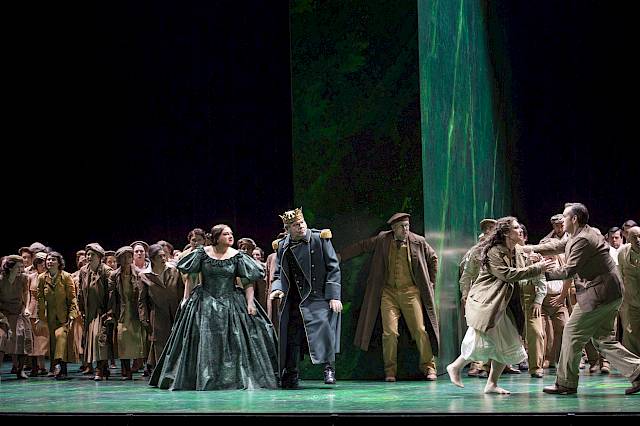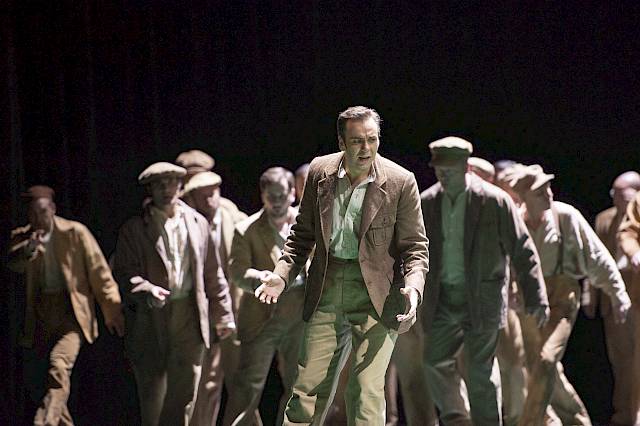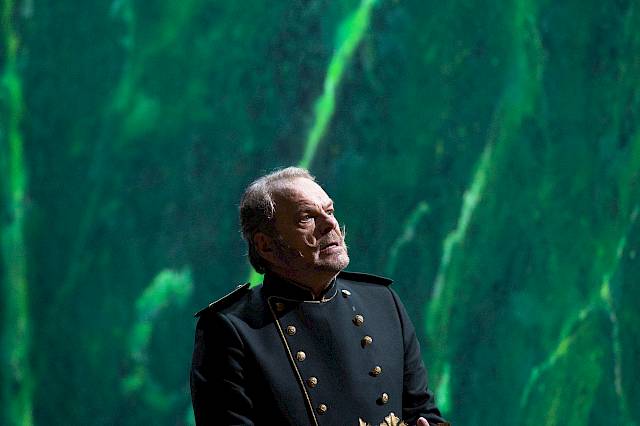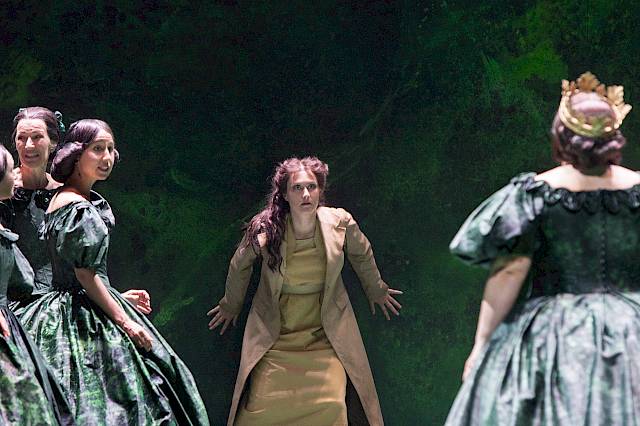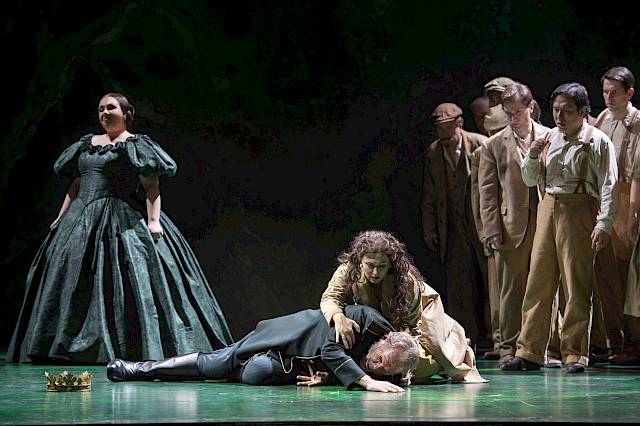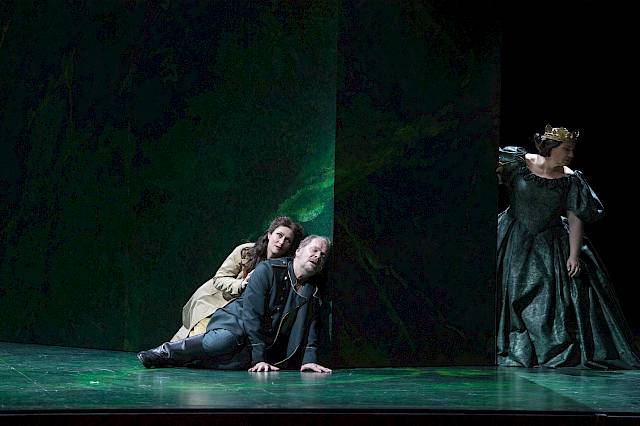Abstract
Nabucco was the young Giuseppe Verdi’s most successful opera. Its premiere at Milan’s La Scala in 1842 was acclaimed, and it remains one of Verdi’s most popular operas today. Verdi found his own musical-dramatic language through this work: using a dramatically tight, fast-paced plot, he shaped stirring conflicts with music and penned striking choral scenes. At the heart of the opera is the prisoners’ chorus «Va pensiero, sull’ ali dorate», in which the Hebrews, whose holy city of Jerusalem was destroyed by the Babylonians, lament their fate. They are imprisoned in Babylonian exile and at the mercy of the wildly excessive King Nabucco. Against the background of this Babylonian-Hebrew conflict, Verdi reveals the drama inherent in individual destiny: Nabucco, his daughter Fenena, and his stepdaughter Abigaille form a familial triangle, in which the last proves to be the most powerful. Still early in his career, the composer created a dramatic soprano role that reveals all the individuality and psychological conflict of a strong Verdi-esque character. Andreas Homoki staged the fall of the Babylonian king Nabucco as the downfall of a ruler who is physically and mentally no longer at his best, at the very moment of a radical political turning point. This revival features internationally renowned baritone Lucio Gallo in the title role. Naples-born soprano Anna Pirozzi, who has been celebrated as Verdi’s Lady Macbeth at the Wiener Staatsoper and London’s Covent Garden, and elsewhere, makes her debut as Abigaille at the Opernhaus Zürich.





